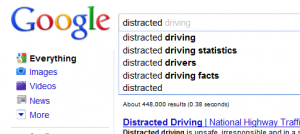 Google Instant changes behaviors in search, and thus SEO can change as well. Originally, I posted a list like this in 2008 about Google Suggest – and it is revised here.
Google Instant changes behaviors in search, and thus SEO can change as well. Originally, I posted a list like this in 2008 about Google Suggest – and it is revised here.
- We May See More Traffic to Regional Sites. People regularly enter “cheap gas” and “best dentist” in search engines – without qualifying the searches at all. Organic results tend to send people to national portals, but suggest-driven search gets them closer to well optimized, regional sites. A search for “cheap gas” without Google Instant offers gasbuddy.com at number one organic result, while a “suggested” search for “cheap gas houston” gives houstongasprices.com.
- Google Instant Drop Down a new micro “SERP”: Those who make their way into the suggest feature get a “better than #1? position.
- Google Instant Results May Change Long-Tail Search Optimization. Those of us who believe in doing long-tail marketing may find an decrease down the tail from search, and a greater need to develop segments of our site to serve those long tail queries. Searches that used to come in with two word phrases may now have 3-4 words, which helps with medium-tail optimization, but longer phrases previously further down the tail may be “clipped.” This will concentrate search terms so that Adwords bids will rise and competition increases in a sort of “cluster” effect.
- Google Instant SERPS offer More Impact for Trademark Blocking in PPC. If your trade name is offered in Google Instant results, and you’ve filed a trademark complaint form, the results page will be free from paid competition giving you a better shot at the traffic through organic or ppc links.
- Google Instant Can Improve User/Searcher Skills Forever. With Google Instant constantly popping up when you go about your daily queries, many who never really thought of keyphrases will now start to think about them. It will be a constant reinforcement of our efforts to think about how consumers search. We may have to adjust our planning to meet these enhanced skills.
- Google Instant Can Be an Ad-Hoc Negative Keyword Tool. There are other ways to be more comprehensive, but Google Instant can help to identify negative keywords you may want to enter in your campaigns. And I saw some negative phrases with higher index numbers that never showed up in Google keyword tools.
- Dramatically Reduced Spelling Error Opportunity. While many of us set up adgroups to capture spelling errors, this will have a decreasing impact as people start to use the suggest feature as a live auto-correction. Typo-campaigns may get less traffic.
- Hijacking Google Instant May Become a SEO Technique. It may become possible to hijack Google Instant so that competitive phrases are strategically flashed to the user. For example.. if you sell “abc widget” then a suggest of “abc widget fails miserably” could be used to divert traffic.
- Better Searches Offer Improved Analytics Information. With the user making clear choices among those available, we’ll have better information about what is enticing and engaging to the users. Vague, high volume two-word searches are always confusing when we’re looking to make decisions, and this might just help us plan better.
- Google Adwords Impressions will change. We’ll need to consider how the rules of 3-seconds’ delay, clicks etc. It’s hard to yet predict what is happening.
- Users will do more exploration. When users don’t fully know about a topic, this can change how they approach search. Searches for “corneal transplant” can see many new avenues about the procedures, treatments, etc and spend more time in these sub-categories.
- Content Creation for SEO may cluster around Google Instant suggestions. If a given suggestion is offered more often, it makes sense to design content for that phrase and special derivatives. If someone is searching for “Lasik Surgery” – content optimized for “Lasik Surgery Risks” would tend to get a lot of clicks it might otherwise have missed. But considering personalized search here, we cannot precisely predict what will be searched for.








Google instant feeds common keywords to every user who search for the same type of key phrases. It will reduce the chances to generate the new search term by a user who will be use to of Google Instant.